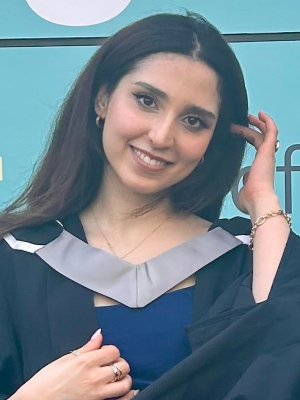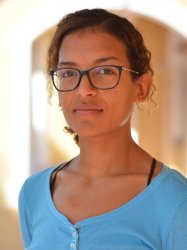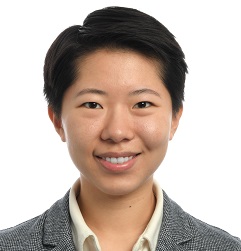Recent Posts
- Engaging the Public on Clean Air Zones at the Imperial Great Exhibition Road Festival 2025
- Hampstead Heath ponds where dogs swim contaminated with pesticides
- MRC Seminar – Planning Future Directions for Environmental Health Sciences – Dr Richard Woychik, Monday 7th October
- MRC Seminar – Social Disadvantage, Lifestyle, and Accelerated Ageing – Professor Mika Kivimaki, Wednesday 9th October
- AWAIR pilot launches new air quality displays in London neighbourhoods
Archives
- June 2025
- October 2024
- September 2024
- July 2024
- June 2024
- October 2023
- September 2023
- August 2023
- July 2023
- April 2023
- March 2023
- February 2023
- January 2023
- December 2022
- November 2022
- October 2022
- September 2022
- August 2022
- July 2022
- June 2022
- May 2022
- April 2022
- March 2022
- December 2021
- October 2021
- September 2021
- August 2021
- July 2021
- June 2021
- April 2021
- February 2021
- January 2021
- November 2020
- October 2020
- August 2020
- July 2020
Categories

Shuhui Li
What were you doing before joining the Centre? I completed my bachelor’s degree at Public Health in Peking University, followed by MSc degree at Epidemiology at Imperial. Also, I worked as a research assistant in the George Institute for Global Health before joining the Centre. Why did you choose the Centre and how did involvement […]
Read moreShuhui Li

What were you doing before joining the Centre?
I completed my bachelor’s degree at Public Health in Peking University, followed by MSc degree at Epidemiology at Imperial. Also, I worked as a research assistant in the George Institute for Global Health before joining the Centre.
Why did you choose the Centre and how did involvement with the Centre contribute to your project?
I chose the Centre because it aligned with my interests in environmental health, biostatistics and multidisciplinary research. The Centre offers me opportunities to learn and work on environmental epidemiology, biostatistics, and machine learning, combining both theoretical and fieldwork aspects. Additionally, the Centre’s active collaboration with leading scientists provides numerous opportunities to participate in exciting projects, significantly contributing to the advancement of my research.
What do you enjoy most about your day to day work and the people you work with?
What I enjoy most about my day-to-day work is the opportunity to collaborate with my supervisors and experts from diverse research areas. It is an honour to learn from such knowledgeable and supportive individuals. Despite the daily challenges, the process is incredibly exciting. My colleagues also actively foster a positive and supportive environment, which greatly enhances the overall experience.
What are your plans after graduating?
My current focus is on completing my PhD project. After graduating, I plan to continue my research in environmental health and biostatics within academia.
What opportunities have you benefitted from outside your PhD?
I have benefitted from attending Imperial public events, where I networked with professionals. MRC and Imperial also provide many chances for internships and student jobs which allow me to apply my research in real-world settings and collaborate with colleagues and students who share similar interests.
Do you have any tips for future MRC Centre Studentship applicants?
Before applying for the studentship, identify your true interests to ensure they will sustain your motivation throughout the PhD process. It’s beneficial to contact potential supervisors to discuss possible projects and determine if they are a good fit for you. Stay healthy and maintain your confidence! Once you receive an offer and become a PhD student at the MRC Centre, take full advantage of the resources and opportunities provided by Imperial and the Centre, including classes, conferences, and training sessions.

Joudi Altaleb
What were you doing before joining the Centre? An MSc in Advanced Mechanical Engineering at Imperial. Why did you choose the Centre and how did involvement with the Centre contribute to your project? The MRC Centre for Environment and Health resonates with my values, as it is dedicated to addressing complex environmental challenges and translating […]
Read moreJoudi Altaleb

What were you doing before joining the Centre?
An MSc in Advanced Mechanical Engineering at Imperial.
Why did you choose the Centre and how did involvement with the Centre contribute to your project?
The MRC Centre for Environment and Health resonates with my values, as it is dedicated to addressing complex environmental challenges and translating research into practical solutions for public health. The collaborative professional environment of the centre is an ideal place for me to further develop my skills. I deeply appreciate impactful works such as the London Hybrid Exposure Model, which has influenced policies like The Ultra Low Emission Zone, directly contributing to the prevention of illnesses such as cancer, lung disease, dementia, and asthma.
What do you enjoy most about your day to day work and the people you work with?
I enjoy the problem-solving aspect of my day-to-day work, as it keeps me engaged and constantly learning. The people I work with are supportive and innovative, fostering a collaborative environment where everyone’s ideas are valued. This combination makes each day fulfilling and motivates me to perform at my best.
What are your plans after graduating?
Inspired by the MRC Centre for Environment and Health, my career aspiration is to pursue an academic research position focusing on the effects of air pollution on biological structures.
What opportunities have you benefitted from outside your PhD?
ITTP Cambridge summer school and joining researchers society as a social sec.
Do you have any tips for future MRC Centre Studentship applicants?
Research the MRC Centre thoroughly, tailor your application to align with its goals, highlight your relevant experience, and demonstrate your passion for the field.

Emily Muller
What were you doing before joining the Centre? Before joining the centre I was working as a Research Assistant in the Department of EBS. Why did you choose the Centre and how did involvement with the Centre contribute to your project? I got to learn about a lot of the research going on at the […]
Read moreEmily Muller

What were you doing before joining the Centre?
Before joining the centre I was working as a Research Assistant in the Department of EBS.
Why did you choose the Centre and how did involvement with the Centre contribute to your project?
I got to learn about a lot of the research going on at the Centre through my previous role and found it really fascinating, I found a medium-sized group of people working on Machine Learning applications which I wanted to be part of. With this specialised group, there is a lot of exchange, from methods, to conferences to the pitfalls of training!
What do you enjoy most about your day to day work and the people you work with?
I enjoy tinkering around with structures and thinking up experiments. I like to be creative with my work and working with such a diverse range of peers really helps with that. There is so much variations in our ideas – and that can be a lot of fun.
What are your plans after graduating?
I have no idea what my plans are after graduating.
What opportunities have you benefitted from outside your PhD?
Opportunities within the Centre outside my PhD have to be fun and creative chats with colleagues and friends.
Do you have any tips for future MRC Centre Studentship applicants?
My tips would be to find something in your work which you really truly get enjoyment from, it doesn’t have to be the entire field, it doesn’t have to be the exact model, but if you know that there are some things which you really do love then that will help so much. For me, I love GIS mapping and algorithms – all of ’em.

Sonja Tang
What were you doing before joining the Centre? I helped ensure the smooth running of the first (pandemic-enforced) fully-remote delivery of Imperial’s MSc in Health Data Analytics and Machine Learning (HDA-ML) for the 2020/21 cohort. I co-supervised research projects and ran remote cohort-building activities. I also conducted epidemiological research as part of the SARS-CoV-2 REACT […]
Read moreSonja Tang

What were you doing before joining the Centre?
I helped ensure the smooth running of the first (pandemic-enforced) fully-remote delivery of Imperial’s MSc in Health Data Analytics and Machine Learning (HDA-ML) for the 2020/21 cohort. I co-supervised research projects and ran remote cohort-building activities. I also conducted epidemiological research as part of the SARS-CoV-2 REACT studies.
Why did you choose the Centre and how did involvement with the Centre contribute to your project?
I chose the Centre as I had already worked with many of the researchers at the Centre, such as Prof. Marc Chadeau (MSc HDA-ML course director), Prof. Paul Elliott (one of the REACT study directors), and Dr Verena Zuber, who supervised my master’s thesis in 2020. The research they and others at the Centre published was methodologically rigorous, novel, and relevant to improving public health. Furthermore, I was aware that many researchers at the Centre focus on developing new statistical and machine learning (ML) methods, the kind of research I was most interested in pursuing in my PhD.
What do you enjoy most about your day to day work and the people you work with?
I am very fortunate to work with supervisors who are not only experts in statistics, ML, and omics (genomics, proteomics, metabolomics…) research but also very responsive to my many questions! They also provide me with frequent constructive feedback and recommend methodologies to explore.
What are your plans after graduating?
My plans still need to be set, but I would like to continue conducting scientific research on improving human health.
What opportunities have you benefitted from outside your PhD?
I created and teach the optional “Introduction to Biomedical Science” module and act as a graduate teaching assistant on other modules of the MSc in HDA-ML, where I’ve been able to hone my teaching skills and have engaging discussions with students. I also co-created and teach the “Regresssions in R” course for the Imperial Graduate School, where I’ve been able to meet PhD students from across the College, which has been greatly enjoyable. I’ve also benefitted from presenting at several scientific conferences.
Do you have any tips for future MRC Centre Studentship applicants?
Before applying, try to schedule a meeting with prospective PIs to discuss potential projects and gauge if it’s the right kind of research for you. Once you’ve joined the Centre, get involved in the various lectures and showcases throughout the year to increase your awareness of the multiple streams of public health research here and share your work. And of course, since we’re not all work and no play, we also have many socials you can try to join!

Recent Comments